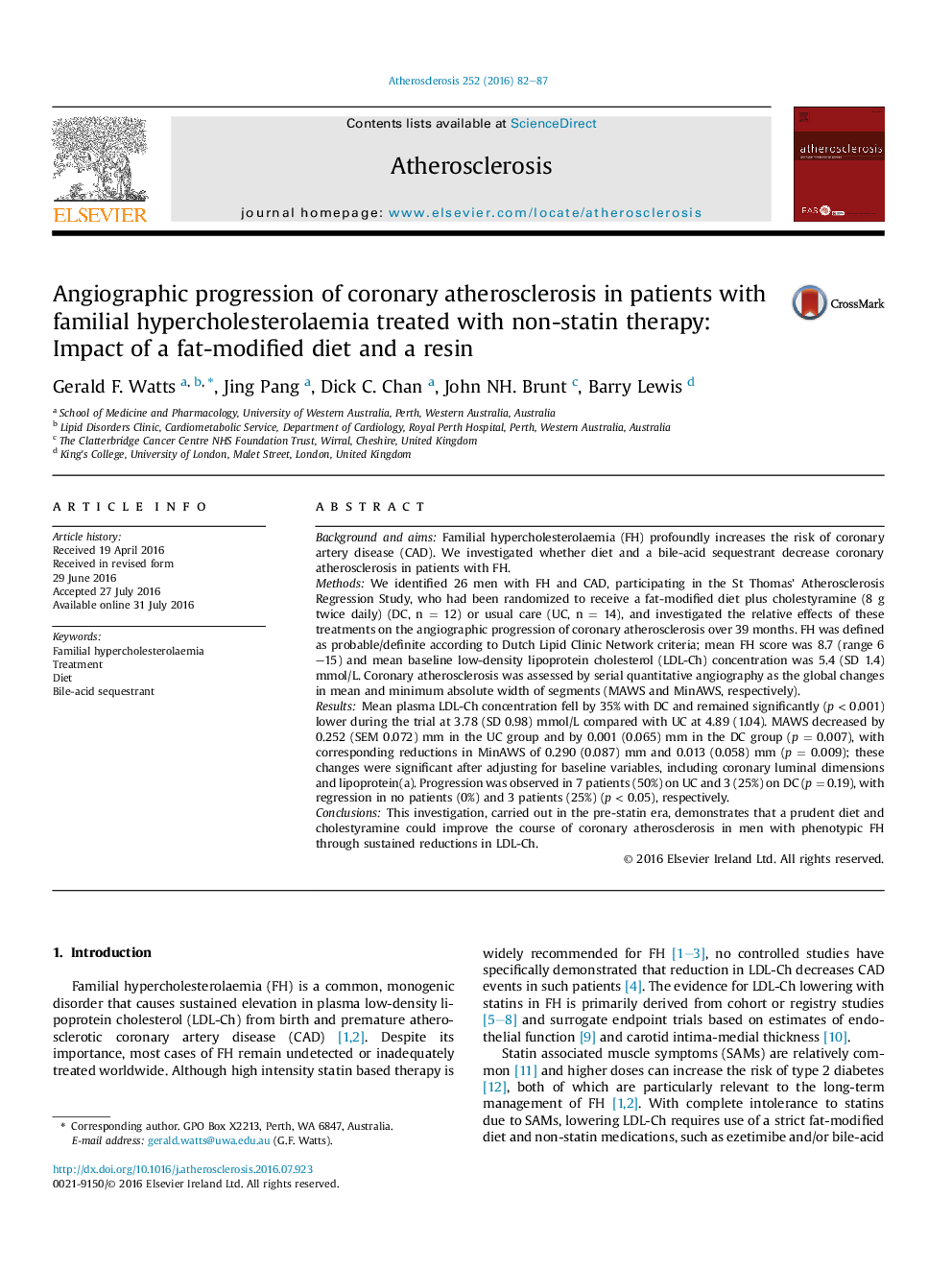| Article ID | Journal | Published Year | Pages | File Type |
|---|---|---|---|---|
| 5942848 | Atherosclerosis | 2016 | 6 Pages |
â¢Familial hypercholesterolaemia (FH) profoundly increases the risk of coronary artery disease (CAD).â¢Cholestyramine monotherapy in combination with a diet may decrease risk of CAD in FH.â¢A prudent diet and cholestyramine improves coronary atherosclerosis in men with FH.
Background and aimsFamilial hypercholesterolaemia (FH) profoundly increases the risk of coronary artery disease (CAD). We investigated whether diet and a bile-acid sequestrant decrease coronary atherosclerosis in patients with FH.MethodsWe identified 26 men with FH and CAD, participating in the St Thomas' Atherosclerosis Regression Study, who had been randomized to receive a fat-modified diet plus cholestyramine (8 g twice daily) (DC, n = 12) or usual care (UC, n = 14), and investigated the relative effects of these treatments on the angiographic progression of coronary atherosclerosis over 39 months. FH was defined as probable/definite according to Dutch Lipid Clinic Network criteria; mean FH score was 8.7 (range 6-15) and mean baseline low-density lipoprotein cholesterol (LDL-Ch) concentration was 5.4 (SD 1.4) mmol/L. Coronary atherosclerosis was assessed by serial quantitative angiography as the global changes in mean and minimum absolute width of segments (MAWS and MinAWS, respectively).ResultsMean plasma LDL-Ch concentration fell by 35% with DC and remained significantly (p < 0.001) lower during the trial at 3.78 (SD 0.98) mmol/L compared with UC at 4.89 (1.04). MAWS decreased by 0.252 (SEM 0.072) mm in the UC group and by 0.001 (0.065) mm in the DC group (p = 0.007), with corresponding reductions in MinAWS of 0.290 (0.087) mm and 0.013 (0.058) mm (p = 0.009); these changes were significant after adjusting for baseline variables, including coronary luminal dimensions and lipoprotein(a). Progression was observed in 7 patients (50%) on UC and 3 (25%) on DC (p = 0.19), with regression in no patients (0%) and 3 patients (25%) (p < 0.05), respectively.ConclusionsThis investigation, carried out in the pre-statin era, demonstrates that a prudent diet and cholestyramine could improve the course of coronary atherosclerosis in men with phenotypic FH through sustained reductions in LDL-Ch.
